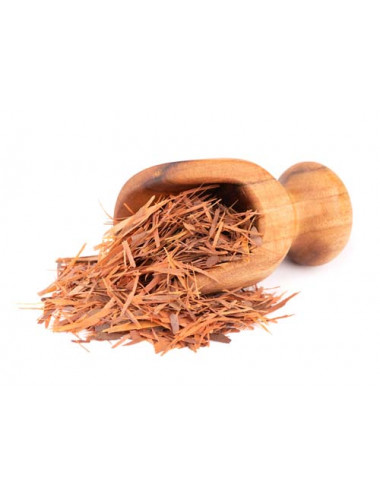

Botanical Extracts




(editar con el módulo de Información de seguridad y confianza para el cliente)
(editar con el módulo de Información de seguridad y confianza para el cliente)
(editar con el módulo de Información de seguridad y confianza para el cliente)
Secure payment
PAU D'ARCO EXTRACT 5:1
This product is not available at the moment
Pau d'arco is a tree native to the Amazon. Its bark and wood have been used for many conditions, but with little evidence. People use pau d'arco for cancer, diabetes, stomach ulcers, and many other conditions, but there is no good scientific evidence to support these uses. The use of pau d'arco can also be dangerous, especially at higher doses.
Pau d'arco is sometimes called quebracho. Do not confuse this with a different plant called Quebracho Blanco. They are not the same.
Product Details
Data sheet
- Origin
- It grows in Central and South America.
- Active compounds
- naphthoquinones — mainly lapachol and beta-lapachone
- Functional benefits
- • Has antibacterial and antifungal properties.
• Help inflammatory conditions like osteoarthritis, which causes swelling, pain, and stiffness in your joints.
• It is attributed with health benefits such as strengthening the immune system and detoxifying the body.
• It is considered a great natural anti-inflammatory and has antibacterial and antibiotic properties.
• It is rich in minerals and vitamins, so it helps to soothe respiratory disorders and colds.
• May promote weight loss by inhibiting dietary fat absorption - Others
- Pau d’arco is available as a pill, liquid, or powder. The liquid form likely contains more of the active compounds compared to the pill or powder.
- Latin name
- Tabebuia impetiginosa






